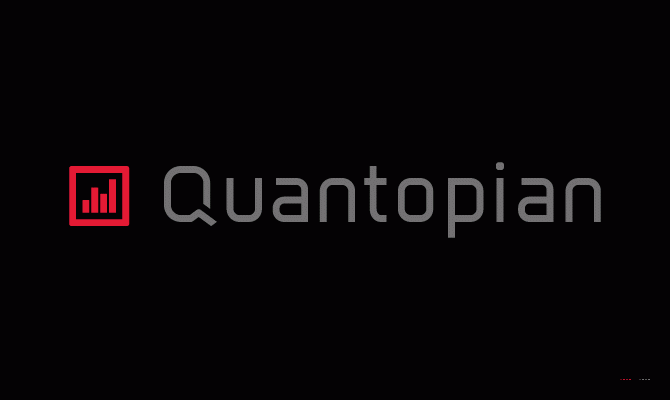Quantopian ensures the alpha never runs out
Quantitative trading is a production problem because quantitative strategies don't last forever.

Crowdsourced investment manager Quantopian has two foundational principles: first, that there is quantitative talent all over the world, and second, that quantitative managers need to continually find new strategies.
Jonathan Larkin, Chief Investment Officer, Quantopian said: "Quantitative and technically capable people aren't only found in financial centres where traditional hedge funds have hired and employed people."
"Quantitative trading is a production problem because quantitative strategies don't last forever. The markets are very competitive. Strategies work for a while but over time become more widely known and deployed.
"Because of that, alpha in the strategy gets competed away. Therefore in order to be successful you have to have very large research output: it's not enough to just find a good strategy, you need to continually find good strategies over time."
Quantopian has brought the internet to bear to the research production problem. This has turned out to be a highly scalable solution. The platform has doubled its community year over year and has over 140,000 members now around the world.
When someone has created a strategy that has survived Quantopian's rigorous analysis and testing, the author may achieve a capital allocation. The largest single allocation Quantopian has made to date has been $10m, said Larkin. "I can tell you when a community member gets the first email inviting him or her to our diligence process to discuss a strategy that they have developed, and that we have discovered, vetted, and validated, it's an extraordinarily exciting moment for them."
The algorithm authors and community members own their IP from day one and they retain ownership of their code and research, which is encrypted on the Quantopian platform. Quantopian licenses strategies it believes are exceptional.
An author of a licensed strategy is typically paid 10% of the net profits of his or her strategy. Hypothetically, in the case of a $10m allocation to a strategy that produces a net annual return of 10% (or $1m in net profits), the author would be paid $100,000. As such, even at these initial allocation levels, an author can earn a meaningful payout.
Larkin makes the point that finance is a latecomer to the crowdsourcing game.
Crowdsourcing has proved very effective in other domains, starting back with the Netflix Prize in 2006. Today you can find people doing varying activities, like protein folding, through crowdsourced websites.
In order to harness the wisdom of crowds successfully, certain features need to be present. One of the necessary features is standardisation. In the case of finance, standardisation comes from the use of performance analytics. "At Quantopian we use a range of studies and performance analytics to evaluate strategies," said Larkin. "We can take very diverse strategies and analyse them in a standardised way, looking at metrics such as Sharpe ratio and exposure to common risk factors. Finance lends itself very well to standardisation."
"A second feature is independence: the crowd must do independent work. Quant finance practitioners are very cautious to protect their IP and their strategy ideas; because of that, when authors create the core of their strategies they do it in isolation.
"A third criterion is that the whole must be greater than the sum of the parts. Modern portfolio theory tells you that when you form a portfolio of uncorrelated strategies, mathematically, the whole will be more valuable than the individuals."
Quantopian has an active community with over 10,000 posts on the community forum last year. The platform also offers free educational content; there are some 50 lectures available. "We bring together people around the world to discuss challenges and opportunities in strategy development," said Larkin.
"This is a difficult business. Only a small percentage of community members will likely get an allocation to their strategies. However, everyone who comes to Quantopian is better off for it because they have the opportunity learn something. They have the opportunity to get exposure and insight to a field which historically has been closed off except to a very narrow segment of the population."
Concluding, Larkin warned of the many failure modes in the design, research and implementation of quantitative strategies such as overfitting, and ensuring data is high quality and without look-ahead bias.
"Data integrity is essential. You must keep it point-in-time," he said, "and you need many datasets. Those datasets need to be integrated, symbol mapped to a single identifier over time, time aligned, and properly corporate action adjusted. This aspect of quantitative investing is not very glamorous or exciting, but it is absolutely essential. Quantopian does this in a world class way, for free, for our community members."
Jonathan Larkin will be presenting at Newsweek's Data Science in Capital Markets conference in New York.
© Copyright IBTimes 2025. All rights reserved.




















